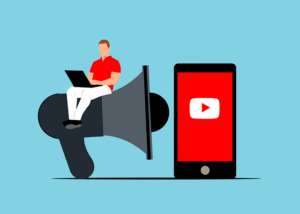Incorporating webinars into MSP marketing strategies is a highly effective approach for lead generation and establishing thought leadership. By presenting expert insights and addressing audience questions live, MSPs can showcase their knowledge and solutions to common industry pain points, thereby attracting a targeted audience interested in their services. Choosing topics that resonate with the target market's needs ensures higher engagement and relevance, which is crucial for lead conversion. Post-webinar analytics from reliable platforms enable personalized follow-ups, enhancing the potential for leads to become clients. Interactive elements like live polls and Q&A sessions offer actionable insights into audience interests, allowing for more targeted marketing efforts. These interactions help create messages that connect with the audience's unique challenges and ambitions, fostering trust and credibility. A successful webinar combines informative content with thought leadership, positioning the MSP as an authority and turning attendees into valuable leads for sustained client relationships. For effective engagement, MSP marketing should focus on content creation that addresses the target audience's concerns, leveraging insights from industry trends, client feedback, and keyword research to ensure content is both informative and search engine friendly. Following up with a series of personalized communications post-webinar reinforces the MSP's value, solidifies new leads, and builds lasting client relationships through strategic use of targeted content and promotional offers.
In the dynamic landscape of managed service providers (MSP) marketing, webinars stand out as a powerful tool for lead generation. This article delves into harnessing the potential of webinars to not only attract but also convert prospects into loyal MSP clients. We’ll explore effective strategies for maximizing engagement during webinars, crafting content that resonates with your target audience, and mastering the technical aspects of hosting these online events. Additionally, we’ll outline a post-webinar follow-up plan designed to nurture leads into long-term client relationships. By integrating these approaches into your MSP marketing strategy, you can significantly enhance your lead generation efforts and set the stage for sustainable business growth.
- Maximizing Engagement and Capturing Leads: Effective Strategies for MSP Marketing Through Webinars
- Crafting Compelling Content: How to Choose Topics that Resonate with Potential MSP Clients
- The Technicalities of Hosting: Best Practices for Webinar Platform Selection and Execution in MSP Marketing
- Post-Webinar Follow-Up: Nurturing Leads into Loyal MSP Clients Through Strategic Communication and Offers
Maximizing Engagement and Capturing Leads: Effective Strategies for MSP Marketing Through Webinars

Incorporating webinars into an MSP’s marketing strategy is a potent method to maximize engagement and capture leads, a critical component of successful MSP marketing. The interactive nature of webinars allows Managed Service Providers to showcase their expertise in real-time, addressing audience questions and providing tailored insights that resonate with potential clients. By selecting compelling topics that address common pain points within the target market, MSPs can attract a relevant audience, ensuring that those who attend are more likely to be interested in the services offered. Utilizing webinar platforms with robust analytics features enables MSPs to track attendee behavior, allowing for targeted follow-ups post-webinar. This data-driven approach ensures that follow-up communications are personalized and pertinent, significantly increasing the chances of converting attendees into leads.
Moreover, the integration of interactive elements such as live polls, Q&A sessions, and interactive discussions within webinars can further boost engagement levels. These features not only make the webinar experience more dynamic but also provide MSPs with valuable insights into audience preferences and needs. By leveraging these interactions, MSPs can tailor their marketing messages to better align with the audience’s specific challenges and aspirations, fostering a deeper connection and establishing trust. The key to success in MSP marketing through webinars lies in delivering high-quality content that educates the audience while simultaneously positioning the MSP as an authority in their field. This dual approach of providing value and demonstrating expertise is instrumental in transforming webinar attendees into qualified leads for long-term client relationships.
Crafting Compelling Content: How to Choose Topics that Resonate with Potential MSP Clients

In the realm of MSP marketing, crafting compelling content hinges on selecting topics that resonate deeply with potential clients. To achieve this, it’s crucial to immerse yourself in the challenges and pain points that MSPs’ target audience faces daily. Identifying these issues allows for the development of content that offers tangible solutions and positions your webinars as indispensable resources. For instance, topics that explore innovative ways to enhance cybersecurity measures or streamline IT operations for small to medium-sized businesses can be particularly effective. By aligning content with the specific needs and interests of your audience, you elevate the relevance and value of your MSP marketing efforts. This approach not only attracts larger audiences but also fosters trust and credibility, paving the way for lead generation success.
When selecting topics for your webinars, consider trends in the industry, feedback from existing clients, and common questions that arise during client interactions. Utilize keyword research tools to gauge what potential MSP clients are searching for online. This data-driven approach ensures that the content is not only informative but also optimized for search engines, thereby increasing visibility and the likelihood of lead conversion. By consistently delivering content that addresses the most pressing concerns of your target market, your MSP can establish itself as a thought leader in the industry, ultimately driving successful lead generation through the power of well-crafted webinars.
The Technicalities of Hosting: Best Practices for Webinar Platform Selection and Execution in MSP Marketing

In the realm of MSP marketing, webinars serve as a powerful tool for lead generation and establishing thought leadership. Selecting an appropriate webinar platform is a pivotal step in ensuring the technical success of these marketing efforts. The chosen platform must be reliable, with a strong track record of handling high-quality video and audio without significant lag or interruptions, which can detract from the professional image of your MSP. Consider factors such as user-friendliness, scalability, and the ability to integrate with other marketing tools and CRM systems. Additionally, the platform should offer comprehensive analytics to measure engagement and performance, allowing for data-driven refinements in future webinar campaigns.
Upon selecting a platform, execution becomes the next critical phase. It’s imperative to plan and test all technical aspects before the live event. This includes ensuring that the webinar environment is secure, with robust measures to prevent unauthorized access. A dry run with your team can help identify potential issues and allow time for troubleshooting. Engaging content delivered through a well-organized agenda helps maintain attendee interest throughout the session. Interactive elements like Q&A sessions, polls, and chat functions not only increase engagement but also foster a sense of community among participants, which is essential for building long-term relationships that can lead to new business opportunities. In MSP marketing, the technicalities of hosting webinars effectively are crucial for the success of lead generation efforts, and with meticulous planning and the right technology in place, your MSP can leverage this approach to its full potential.
Post-Webinar Follow-Up: Nurturing Leads into Loyal MSP Clients Through Strategic Communication and Offers

After delivering a compelling webinar, effective post-webinar follow-up strategies are crucial for MSP marketing success. This is the stage where initial engagement is transformed into meaningful leads and eventually loyal clients. The immediate aftermath of the webinar provides a golden opportunity to keep your audience engaged by sending out personalized thank-you emails that also recap the key points covered in the session. This not only reinforces the value of the content but also keeps your MSP at the forefront of the attendees’ minds.
To nurture these leads, consider a well-structured email campaign that provides additional insights, addresses common questions, and shares related resources. This content should be tailored to the interests expressed during the webinar, ensuring relevance and value for the recipients. Offering exclusive deals or access to premium content can further incentivize prospects to take the next step with your MSP. By consistently delivering valuable information post-webinar, you establish your MSP as a trusted authority, thereby shortening the sales cycle and fostering long-term client relationships through strategic communication and offers within your MSP marketing efforts.
In conclusion, webinars serve as a potent tool in the MSP marketing arsenal, offering a unique blend of engagement, education, and lead generation. By meticulously selecting topics that address pressing concerns within the MSP client base and employing strategies to maximize audience participation, MSPs can significantly enhance their visibility and reputation. The choice of a reliable webinar platform is critical, as it ensures seamless delivery and accessibility of content, which is essential for capturing leads effectively. Post-webinar engagement is equally important; a well-crafted follow-up plan can nurture those leads into loyal clients. For MSPs looking to bolster their lead generation efforts, integrating webinars into their marketing strategy is not just advisable—it’s an imperative step towards success in the digital marketplace.
